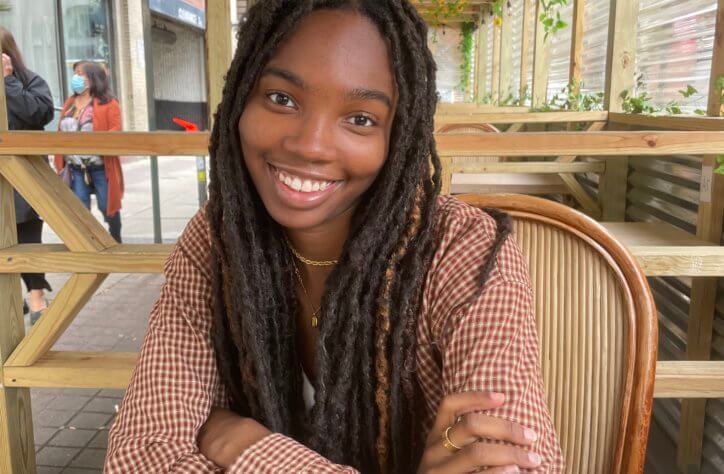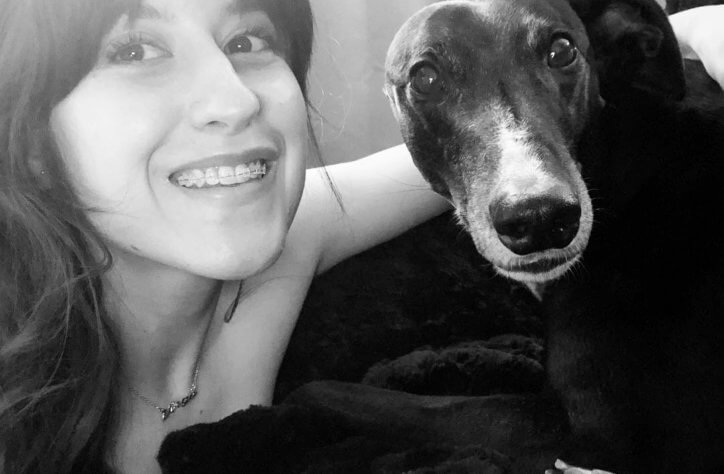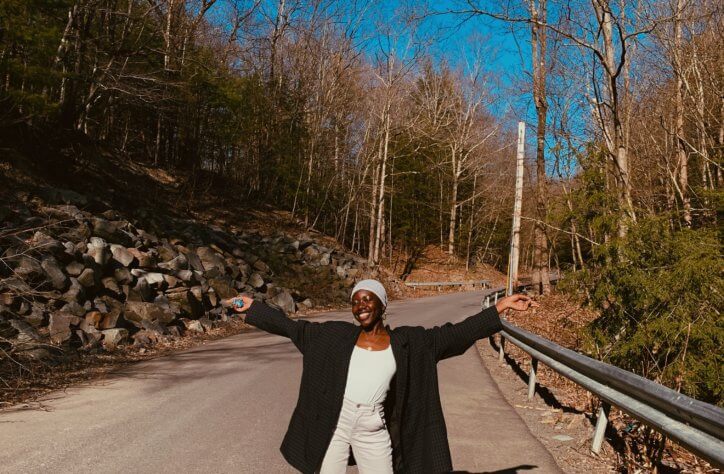Women Are Taught to Resist Doing What They Want
Disclaimer: I will use the terms ‘girls’ and ‘boys’ and ‘women’ and ‘men’ in this article, but i want to make clear that this article is inclusive and for people of all gender identifications, and the term ‘girls’/‘women’ is a broad term i’m using for all people who identify under the female/femme/non-binary bracket
Trigger warning: eating disorders / domestic violence
“Careful, it’s dangerous!”
“You might hurt yourself!”
“You’ll ruin your dress!”
…sound familiar, girls?
Growing up a girl, it’s more normal to hear your elders discouraging you from trying things rather than encouraging you to. From an early age, we’re taught that we can’t achieve the same things as boys and our parents control our actions far more strictly than our male peers up into adulthood. In infancy it’s no, you can’t climb that tree, you can’t have a digging set, you can’t play with the boys, you can’t play football, you can’t wrestle, you can’t go in the mud, you can’t look untidy. Having cuts and grazes is heroic for boys – it shows weakness in girls. In adolescence it’s no, you can’t wear that skirt, you can’t go on that date, you can’t stay out that late, you can’t travel alone, you can’t have sex yet, you can’t eat that, you can’t act like that. Having your decisions controlled and restricted by others is ingrained into your psyche from an early age as a woman. We’re taught that getting what we want and doing things for ourselves is selfish and impure. We’re taught, far more than boys are, that what other people think of us is important.
One of my hobbies is skateboarding, and when I started, I realised just how much this is true. I would walk into a skatepark and be stared at because it’s rare to see a girl in that environment. Skating involves falling over, cuts and bruises, sweating profusely, making loads of mistakes before you get a trick, taking big risks – things that most girls just aren’t raised to think they can do, whereas most boys are. This isn’t only limited to girls either. Skating, along with a lot of other sports and physical activities, has a severe lack non-binary/transgender and LGBT people participating as well as a lack of girls.
One of the biggest elements of women’s lives that society attempts to control is our decisions about our body. How much we love our body, what food we put into our body, how often we have sex with our body, how much of our body we show to the world, what we do with our pregnant body. All of these things tend to be less a decision in our own hands and more something up for public debate.
In my adolescence I suffered with anorexia. I limited the amount of calories I consumed daily and exercised excessively in order to lose weight. I was one of 1.6 million people in the UK estimated to be suffering from an eating disorder, 89% of those people being female. What disturbs me the most is actually not how high that statistic is, but that I can completely understand why many women, particularly young women (majority of sufferers are between the ages of 14 and 25), experience these issues. Why? Because you’d have to have the will-power and self-assuredness of Derek Zoolander not to be affected by the constant deluge of images across magazines, social media, movies, TV, billboards, fashion adverts, of what the “perfect woman” is. We’re stuck in a culture that teaches women that ‘going without’ and suppressing your desires means you’re sexier and more appealing. Just look at the headlines in gossip columns and women’s magazines – “Katie piles on the pounds!” “How to get rid of your cellulite!”, “top tips for getting that beach body”. Every image, airbrushed free of stretch marks, body fat, lightened dark skin, removing spots and marks on the face, teaching us that everything that makes us real is “flawed” and must be “removed”.
In drugstores and beauty shops, the plethora of female beauty products VS mens beauty products teach us that self-improvement is normal and necessary as a woman. Take a look at movies – how often do you see a mix of different body shapes in the female cast while the men in the cast tend to have a much more diverse mix? And how often do you see women eat in movies compared to men? It’s a typical scene in any movie to have a couple guys sit down at a diner, indulge in a heated conversation over lunch with burgers spilling out of their mouths, beers to hand, and have it represented as two powerful characters having an important conversation. However, when it’s women eating large meals or unhealthy foods, more often than not it’s after a crisis has occurred and they’re “stress eating”. The consumption is portrayed as a weakness and is looked down on by their peers. Society glamorises the ability for women to resist food and encourages men to eat up and grow strong. This dates back to the 50s housewife mindset, where the woman’s role was to look pretty and make the food and it was the man’s to eat it.
The pressure to suppress our desires in order to be appealing is very relevant in women’s sex lives too. When I was at school, I remember boys around me talking about wanking constantly. The girls would laugh while the boys talked about how many times they wanked a week, making gestures and drawing penises all over notebooks, walls, bathroom toilet cubicles. But never once was female masturbation ever talked about. I didn’t masturbate until I was 16 and I didn’t TALK to a friend about masturbating until I was 18, because I felt ASHAMED that there was something weird and wrong with me as a girl touching myself. As women, we’re raised to believe that our own sexual pleasure is given to us as a reward by men, and often for the men too. In pornography, women are always in objectified, submissive roles tailored for male stimulation and gratification – the fact that there has to be a “female-friendly” section teaches us as women that wanting to pleasure yourself is less important than pleasuring a male partner. The portrayal of same-sex relationships among women in pornography is also shown as a kink or fetish for men to enjoy. Pornography for queer women to watch that actually reflects real sex is nowhere to be found on mainstream porn sites.
The portayal of promiscuity amongst the sexes is also polar opposite. If a woman sleeps around, she’s a “slut” “gets around” “needs to have some control” “embarrassing” “desperate”. If a man sleeps around, he’s a “stud” “smooth” “the ladies love him”. Virginity and abstinence is shown as a good quality for women to have, making them pure, pretty, delicate. Promiscuity in women is seen as dirty and misguided.
The affect on a woman’s professional reputation after misbehaviour is also lopsided. After Winona Ryder was caught shoplifting from a Beverly Hills store in 2001, she disappeared for years from the acting world, her reputation tarnished. When Johnny Depp was accused of domestic abuse charges by his then-wife Amber Heard, what happened to his career? It continued to flourish. The same is sadly of many abusers; the recently deceased XXXtentacion had a incredible career in his short life, all while he had 15 charges of assault, rape and domestic violence against him.
Women are givers to others, that’s what we’re taught our purpose is. Our bodies aren’t our own, our choices aren’t our own, our sex isn’t for us. We’re not taught to love ourselves. Well, you know what? This article isn’t all bad because I can feel it changing. The next generation of women are starting to reject this fucked-up NORM using social media platforms like Gurls Talk as powerful vehicles of communication. We still live in a world where being a woman who does what she wants for herself and loves herself is REBELLIOUS. But the more women who stand up and say ‘I’m gonna do what I WANT for ME’ and ‘I LOVE MYSELF THE WAY I AM’ the more this becomes normalised. The more we teach our kids of all genders that everyone is equal and everyone can make the choices that are right for them without being judged or shamed, that’s how we begin to make serious change. Someone had to be the first to stand up and say “hey, I want to vote too!”. Small ripples make a big wave of revolution.









